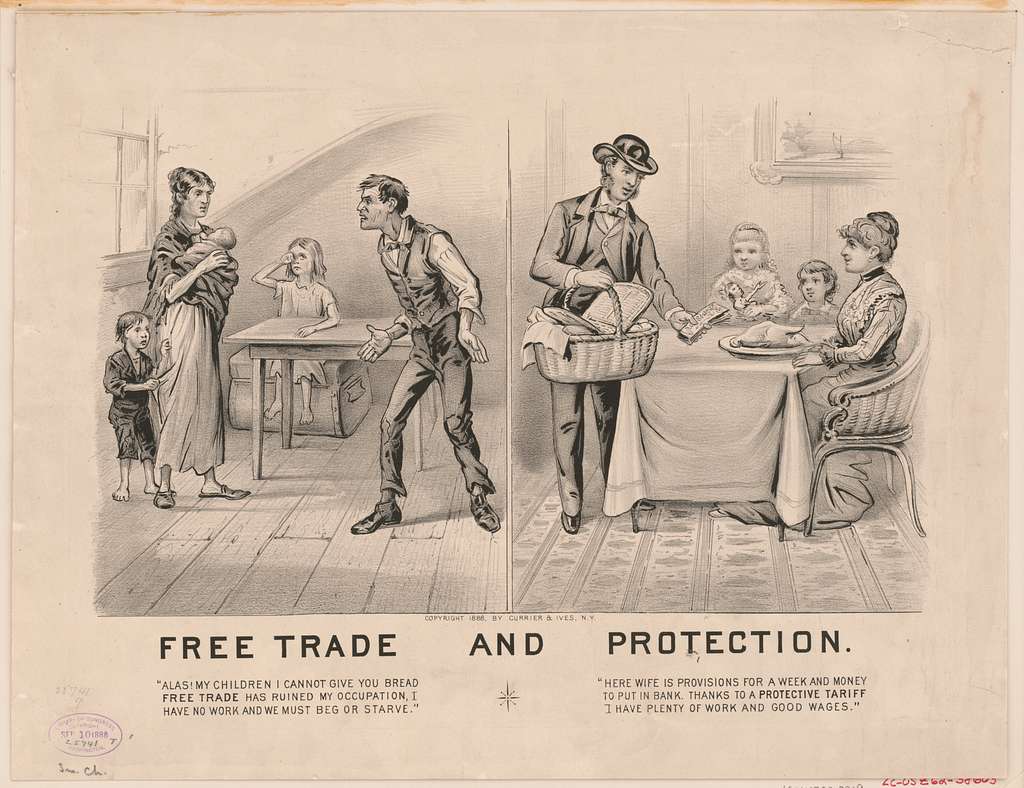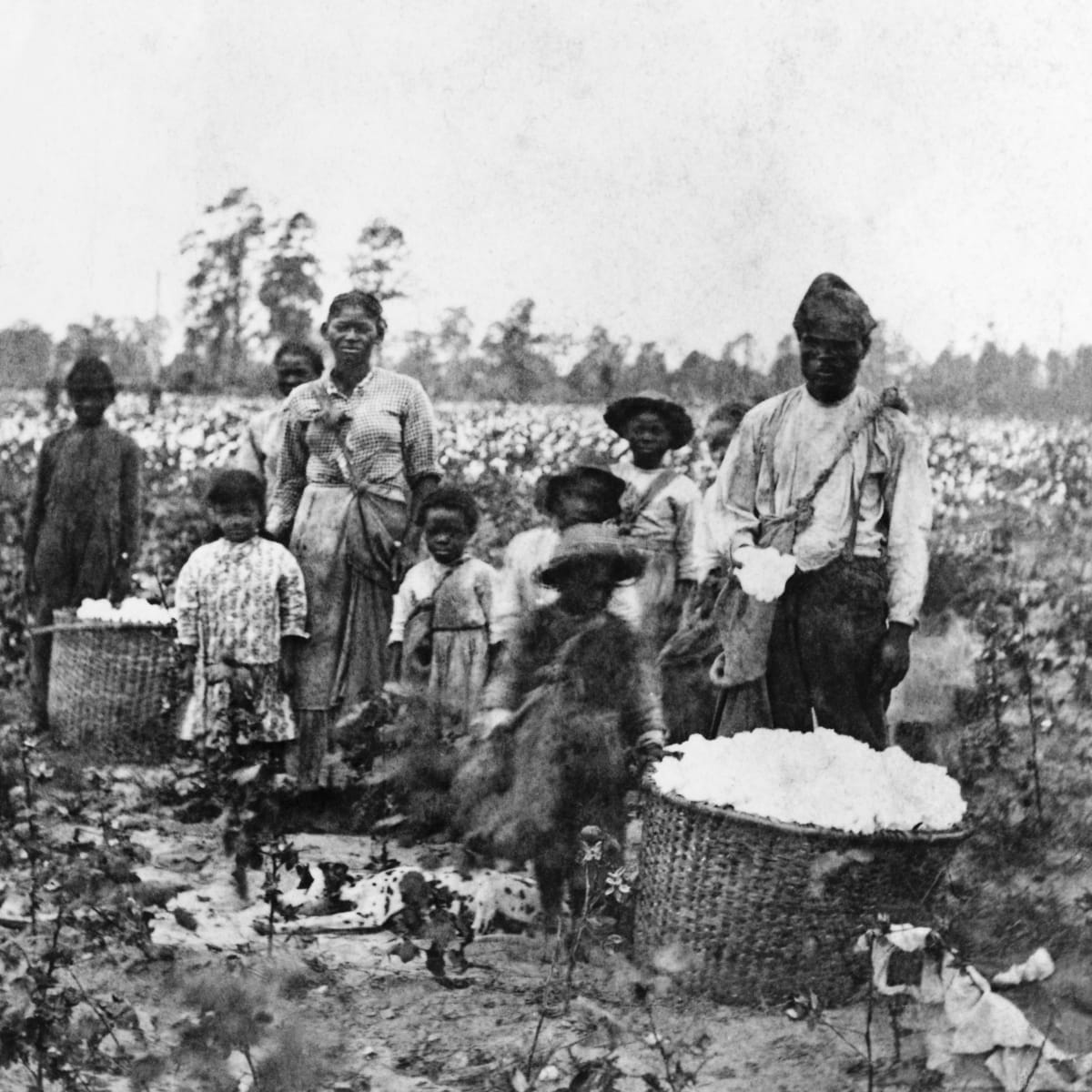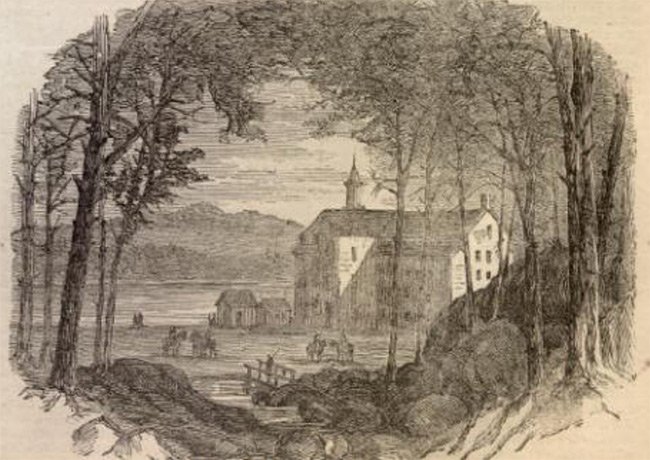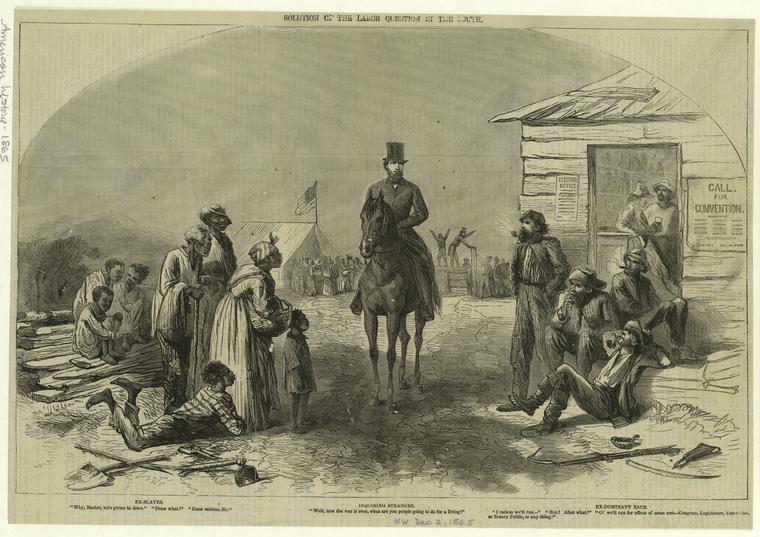
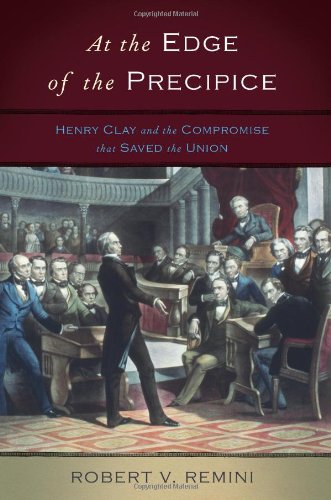

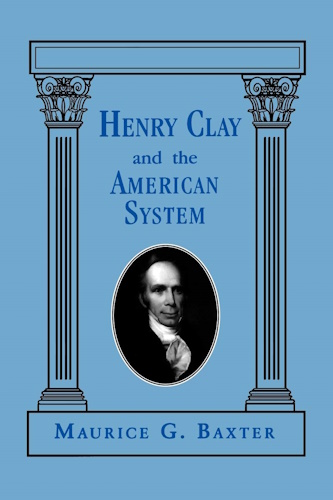

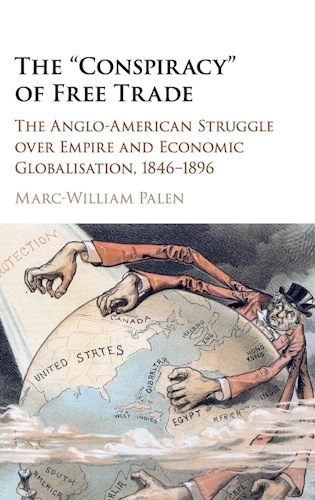



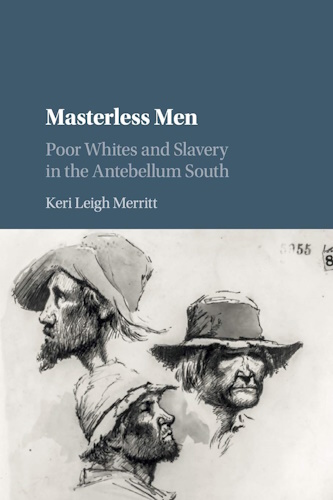

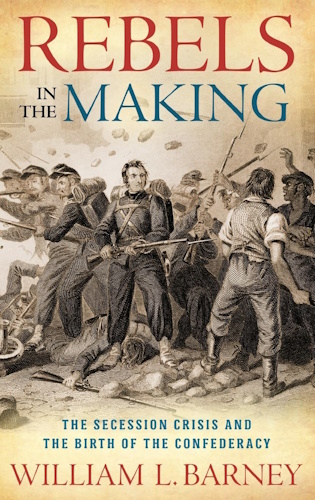



Free Trade, The Confederacy,
and
the Political Economy of Slavery
by
Frederic W. Henderson
Printed in the American Almanac
November 11, 1991
Contents:
- "American System" Economic Doctrine
- Free Trade: What it is.
- The South, Slavery and Free Trade
- What was the Confederacy
- De Vandyke
- Slavery and the Southern Mission
As the debate on the question of the North American Free Trade Agreement (NAFTA), and the doctrine of free trade as the panacea for American economic problems, has raged in the past month, the American electorate have not been told that this nation has once in its history experienced the "magnificent benefits" of truly free market, free trade economics. While President George Bush, and his associates in the fight to ram through "fasttrack" authorization for NAFTA, regale the innumerable advantages of such an agreement, based on such policies, the American people should know, not only that free-trade has historically been an alien and subversive economic principle for this nation, but that the only time that it has actually prevailed on American soil, it produced the living hell known as the Confederate States of America.
Much as history has been written otherwise, slavery, secession and the great war fought to insure the survival of this nation between 1861-65, was a battle against the destructive policies of what was then known as "British" free trade. The southern Confederacy, along with its doctrines of human slavery, states rights and secession, was the institutionalized manifestation of British free trade policies in America. It was free trade that created slavery, as part of a system that oppressed the majority of the southern population, and turned that section into a despotic, oligarchical nightmare in total opposition to the principles of republicanism upon which this nation was founded.
"American System" Economic Doctrine
It is the promise of the Declaration of Independence, "that all men are created equal" with the inalienable rights to "life, liberty and the pursuit of happiness." With these same principles embedded in the Constitution of the United States, this means a government that will provide for economic development, and will guarantee government republican in spirit and form. Government that will insure "life, liberty and the pursuit of happiness" by fostering the development of its citizens, through economic, scientific, and technological progress. This is how the nations founders understood it and fought, through Alexander Hamilton's policies, as the first Treasury Secretary, to implement such policies for economic development. Under President George Washington, Hamilton created a national bank to control and direct the nations credit towards development of its economic resources. Recognizing that the increase of the productive powers of its citizens was essential to the development of all other resources, the economic policy of Washington's administration was directed toward fostering American manufactures, new technologies, and a system of internal improvements. Protection, in the form of a tariff policy to prevent the destruction of American manufactures, agriculture, and labor by the British, became a critical component of this "American System" economic program. These policies later were the center of continuing political battles against the efforts of British and Swiss finance to economically "recolonize" America throughout the 1800's. Centered around the leadership of Mathew Carey, his son, Henry, and Henry Clay, the "American System" of political economy, as Clay had termed it, was used by the forces allied against free trade who fought to insure that the cancer that was rapidly transforming the South would be eliminated, before it destroyed the whole nation.
The American nation was founded in opposition to the vestiges of feudal power and policy in Europe. That the obscenity of Southern feudalism, based on free trade and an opposition to Clay's and Carey's "American System" doctrines, had been allowed to exist on this continent was at root the issue over which the South moved to destroy the American nation. With the battle over southern secession, the issue became that of whether the American nation would continue to remain, in the words of Abraham Lincoln, "half slave and have free." If it were to survive it could not be allowed to remain a nation anything other than free, in the fullest meaning of that term, both North and South. This meant the end of not simply slavery, but of the policies that bred slavery. Political and civil equality cannot exist without economic freedom, and the policies of free trade meant economic slavery.
Free Trade: What it is.
Under the guise of insuring the maximum economic freedom, free trade produces precisely the opposite results. A doctrine elaborated, most notably, by Adam Smith and John Stuart Mill, in response to the development in the United States of the "American System" policies of the Washington Administration, it was designed to insure the subjugation to British economic power of the economies of the rest of the world. If England could no longer maintain a colonial empire under its political control, it would insure its preeminence throughout the world by economically keeping other nations in a state of colonial or semi-colonial backwardness. Such British free trade meant policies that compelled the export of raw products, the exhaustion of the land, the cheapening of labor, and the export of the laborer.
Utilizing the argument that the free market is the best "governor" to insure the increase in wealth, free trade demands that government intervention with the "free" market be eliminated. With its opposition to protective tariffs, direction and control of credit, sponsorship of internal improvements, and the development of manufactures, and new technologies it insures the continued enslavement of less developed economies to the looting of superior economic power. Understanding the lessons of British financial and economic policy on the American colonies and its other colonial possessions, this Nations founders recognized that the failure to protect the development of native manufactures meant perpetual dependence on those of Britain, with such economies remaining as solely the raw materials suppliers for British industry. Inevitably, along with this went perpetual economic backwardness, with the degradation of the value of raw materials, land, and labor.
The South, Slavery and Free Trade
That precisely this had occurred in the better part of the South, was obvious to those "American System" Whigs, allied with Carey, who fought for an alternative policy during the 1840's and 50's. The southern economy had become almost exclusively a slave based, cash crop agricultural one, totally dependant on British markets, and totally indebted to British or British allied finance. As a result, close to between 80 to 90% of all land in the slave states was owned by the approximately 2 to 3% of the population who were slaveholders; three hundred and fifty thousand slaveholders in a population of 11 million. Of these no more than one hundred thousand owed two-thirds of all the land and 90% of all the enslaved black population of 4 million. The bulk of the remaining white population were either landless or struggled to etch out an existence on small farms generally located in the regions poorest agricultural area's. What little industry that existed was rudimentary and primitive in character. The southern economy was totally dependant on outside markets for the sale of its two major export commodities, raw, unfinished cotton and to a lesser degree rice; it was similarly totally dependant on outside markets for the bulk of its foodstuffs, almost all consumer goods, and virtually all capital goods. Almost no other of the extensive mineral and natural resources in these southern states were developed or harnessed. As Thaddeus Stevens, a close ally of Henry Carey, would argue in 1850, comparing Virginia, as an example of the all the southern states, the disparities between north and south were striking.

"At the time of the adoption of the Constitution, she was the most populous state--her population was double that of New York. It was the boast of her statesmen that she was prima inter pares, first among equals. What is she now? The population of New York is more than double--I think the next census will show nearly treble hers. Her land, cultivated by unwilling hands, is unproductive. Travel through the adjoining states of Ohio and Pennsylvania, and you will see that the land produces more than double as much as the same kind of land in Virginia. In the free states new towns are everywhere springing up and thriving; the land is becoming more productive; smiling habitations are within hail of each other; the whole country is dotted with school-houses and churches almost within sight of each other; and except under peculiar circumstances, their manufactures and mechanic arts furnishing lucrative employment to all their people; and their population is steadily and rapidly increasing. Turn again to Virginia. There is scarcely a new town within her whole borders. Her ancient villages wear the appearance of mournful decay. Her minerals and timber are unwrought. Her noble water-power is but partially occupied. Her fine harbors are without ships except from other ports; and her seaport towns are without commerce and falling to decay. Ask yourself the cause, sir, and I will abide the answer."
A few simple statistics abundantly confirm Steven's description of the lack of southern development. In 1790, at the time of the adoption of the Constitution, Virginia was the most populous state in the nation; her population, as Steven's notes, was double that of New York. By 1860 her population had barely doubled, while that of every northern state had increased by between nine and ten fold. Such was the case throughout all of the south, demonstrating the stagnant character of economic activity in the region. More dramatically, the value per acre of farmland in the north was almost three times that of the south, yet only 40% of its labor force, as compared to 84% in the south were engaged in agriculture.
Along with the development of an industrial economy, agriculture in the northern states had become significantly more productive. The reasons can be seen in the fact that investments in both agricultural and manufacturing were vastly greater in the northern free states than in the slave labor economy of the south; both the value of farm machinery and implements per acre and per farm laborer in the south were approximately one half that in the north. A more telling figure is the percentage of capital invested in manufacturing; in 1860 over 84% of the U.S. total was invested in the north, with a mere 16% in the south; the per capita dollar figure in the north was four times that in the south despite the North's greater population.
As this brutally primitive style of agriculture depleted the soil, for southern capital was tied up in land and slaves, and therefore barred any investment in improvements in cultivation, diversification, or new technologies, the surge for yet new and untapped land in the deep south, the so-called "black belt" states of Alabama, Mississippi, Louisiana and Texas, along with the demand for even greater numbers of slave laborers, turned the older planter states like Virginia into slave breeders. By the mid 1850's slaves were Virginia's primary export, and the supply of such slave laborers for deep south plantations became the major economic activity of the old south.
While cotton, and rice were still produced in the states of the old south, they generated such low yields, that they no longer were economically viable without massive increases in labor intensity. With little or no investment in any other form of economic activity, by 1860 these areas of the old south were themselves enslaved to a slave based economy, with their productive capacity at feudal levels, and the indebtedness to British "factors" reaching astronomical proportions. Virginia, for example, was so exhausted economically, that while the rest of the south renewed the call for reopening the African slave trade, Virginia consistently opposed such a measure, for an alternative supply of cheap slave labor to the rest of the south would have bankrupted her. In South Carolina, the oldest of the cotton states, agricultural yields per laborer had dropped to levels that were staggering, producing a black slave population that was 125,000 or 20% greater than that of whites; and this despite the export of slave laborers to the deep south.
The most telling aspect of what this free trade based system produced, however, is in the character and condition of labor in the south. Given the principle, that was central to doctrine of "American System" political economy, that the most essential of all resources is the productive capacity of labor, the productive potential of a nations citizens, as the basis for the development of all other resources, it is here that the most damning indictment of the results of free trade policies on the south are found. A system based on the enslavement of the productive capacities of the bulk of its labor force is itself a statement of the bankruptcy of such a system, and would undoubtedly mean conditions that were barbaric and brutal, not only for the black slave, but for its supposedly free labor, as well. Descriptions of the conditions that existed for black slaves in the south are legend as to the brutal and inhuman way in which they were treated under this system. Prior to the War, descriptions by both northern and southern writers of the conditions of the black slave had circulated throughout the North. However, it is striking that as Northern soldiers traveled south with the advancing Union armies, they were still shocked at what they found. In so doing they came to fully understand what it was they were fighting against. One, Major George Ward Nichols, a staff officer during Sherman's march through Georgia and the Carolinia's, recorded his observations in a diary that not only clearly summarizes this truth, but indicates how the whole of southern life reflected the effects of this slave based system.
"Just before his entrance into Milledgeville [state capitol of Georgia, ed.], General Sherman camped on one of the plantations of Howell Cobb. It was a coincidence that a Macon paper, containing Cobb's address to the Georgians as General Commanding, was received the same day.....I do not know that Cobb ever claimed any great reputation as a man of piety or singular virtues, but I could not help contrasting the call upon his fellow citizens to 'rise and defend their liberties, homes, etc., from the step of the invader, to burn, and destroy everything in his front, and assail him on all sides," and all that, with his own conduct here, and the wretched condition of his negroes and their quarters."
Nichols then describes his surprise at the belief that many blacks had in stories told them by their masters of the atrocities they should expect at the hands of the "Yankees," and notes a conversation with an old black man,
"He had never known anything but persecutions and injury from the white man, and had been kept in such ignorance of us that he did not dare to put faith in any white man. This terrorism, which forms so striking a feature of slavery, has had marked illustrations ever since we left Atlanta."
While slavery clearly degraded the black population of the south, slavery and the agricultural system that created it, also degraded the free laborer. With cotton production, as the single cash crop commodity of most of the south, devouring the bulk of available farm land as fast as it could be brought into cultivation to meet the demands of foreign, primarily British, markets, there was very little place for more costly free labor. Since labor intensity, rather than capital investments in the improvement of the productivity and efficiency of agriculture, was the central principle of cotton production, the productive capacity of all labor remained low. As a result, the living standards, skill and educational levels, and output of free labor in the south remained at near bestial levels. This applied to even those middle sized landowners who owned small numbers of slaves and cultivated smaller farms.
"To-day is the first time within a week when I have seen a household where the women are neatly dressed and the children cleanly. The people who have inhabited the houses along the roads for fifty miles behind us are among the most degraded specimens of humanity I have ever seen. Many of the families I now refer to do not belong to the class known as the "poor whites" of the South, for these are large landowners, and holders of from ten to forty slaves.
"The peasantry of France are uneducated, but they are usually cleanly in their habits. The serfs of Russia are ignorant, but they are semi-barbarous, and have, until lately, been slaves. A large proportion of the working classes in England are debased, but they work. But the people I have seen and talked to for several days are not only disgustingly filthy in their houses and their persons, but are so provokingly lazy or "shiftless," as Mrs. Stowe has it, that they appear more like corpses recalled to a momentary existence than live human beings, and I have felt like applying a galvanic battery to see if they could be made to move. Even the inroads of our foragers do not start them into life; they loll around like sloths, and barely find energy enough to utter a whining lamentation that they will starve."
Such a labor system would not only degrade labor, but would bestialize those who owned, or controlled such labor. Despite the southern propaganda praising the benefits of such a system, and southern assertions of the power of King Cotton, southern planters were themselves chained to such a primitive system, through indebtedness to outside finance, total dependence on the British and British allied New England textile manufacturers, who turned their raw cotton into finished products, and outside suppliers for almost all consumer and capital goods. The need to justify and defend such a system had horrid consequences for what they would become. In this context, the shear violence of southern society is a telling fact, with homicide among southerners, particularly those as a result of dueling or "gentlemen's homicide" reaching frightening rates.
"During this campaign I have seen terrible instances of the horrors of slavery. I have seen men and women as white as the purest type of the Anglo-Saxon race in our army, who had been bought and sold like animals. I have looked upon the mutilated forms of black men who had suffered torture at the caprice of their cruel masters, and I have heard tales of woe too horrible for belief; but in all these cases I have never been so impressed with the degrading, demoralizing influence of this curse of slavery as in the presence of these South Carolinians. The higher classes represent the scum, and the lower the dregs of civilization. They are South Carolinians, not Americans."
While the south was almost completely without native manufactures, with labor costs suppressed as a result of the character of the system, and the availability of slave labor, some crude and primitive manufactures did develop, largely similar to the pig iron manufacturing that Britain had allowed in its American colonies. They essentially represented intermediary stages in the production of raw materials, or production of crude goods that it was more profitable not to re-import back to the south. Such a facility was Saluda Factory, which produced crude woolens, essentially burlap, for local use. The absolutely bestial effects on free labor, and the primitive level of manufactures thus produced in this southern free trade zone of the mid 1800's are clear from this description of Saluda, located outside of Columbia, S.C,:
"It must not be imagined that these Southern factory operatives are of the same class with the lively and intelligent workers of New England..... But when we came to see the reality at Saluda Factory, sensations of disgust and mirthfulness struggled for the mastery--disgust at the repulsive figures whom we encountered, and amusement at the chopfallen air of the gallant young staff-officers who were eager to pay their court to beauty and virtue. It would be difficult to find elsewhere than at this place a collection of two hundred and fifty women so unkempt, frowzy, ragged, dirty, and altogether ignorant and wretched.....
"The residences of these people accorded with their personal appearance. Dirty wooden shanties, built on the river bank a few hundred feet above the factory, were the places called homes--homes where doors hung shabbily by a single hinge, or where destitute of panels; where rotten steps led to foul and close passage-ways, filled with broken crockery, dirty pots and pans, and other accumulations of rubbish; where stagnant pools of water bred disease; where half a dozen persons occupied the same bed-chamber; where old women and ragged children lolled lazily in the sunshine; where even the gaunt fowls that went disconsolately about the premises partook of the prevailing character of misery and dirt. These were the operatives, and these the homes produced by the boasted civilization of the South.
"The factory is a large stone building, filled with machinery for the manufacture of yarn and the variety of coarse cotton cloth known as Osnaburgs. The looms were dirty and rusty; the spindles were worn out by misuse; the spools appeared conscious that they had fulfilled their mission; the engine was out of joint and dirty. Filth and ignorance reigned over the entire business. As I left the premises and rode away down the glen, I passed a group of the degraded and unfortunate women already described toiling up the hill with back-loads of plunder. Some of our soldiers were helping them to carry their cloth and yarn.
"In the old times it was a favorite argument of the slave-holders that their "peculiar institution" was a blessing to the negroes, and it was their habit to make comparisons between the condition of their slaves and that of our well-bred, intelligent factory operatives, asserting that the slaves were the higher and happier class of the two. We have seen what the slaves are; but here is a shocking exhibition of the disgrace and degradation which is visited upon white labor in the South. The visits we are paying our Southern brethren expose not a few of the shameless falsehoods and villainies of the slave oligarchy."
Similarly, the conditions of the "poor white," both economically and socially, were degraded to a level hard to imagine, as one, of what are many such descriptions of this section of the southern population found in such memoirs, makes clear:
"During the march to this point we have had opportunities of observing a barren agricultural region, and a population of "poor whites" whose brain is as arid as the land they occupy. The wealthy landholders, who formerly held this region by a sort of feudal tenure, have all run away on the approach of our troops, leaving a contingent remainder of ignorant half-civilized people, whose ideas are limited, and whose knowledge of the English tongue is, to say the least, extremely imperfect. A family of this class I found in full and undisputed possession of the mansion of an escaped magnate (I came near writing the word convict). The head of this family was a weak creature, with pale face, light eyes, and bleached beard. His wife, a women of about thirty years, was bowed, crooked, and yellow. She carried in her arms a dirty boy about three years old. A frightened young girl of thirteen, the woman's stepdaughter, completed the number in the household. The man entered freely into conversation on the subject of the war. He seemed to understand little of the great principles which were at stake in the conflict, and, in point of fact, it is an open question whether he knew what a principle meant; yet even his dull intellect took in two points, namely, that the success of the Rebels would certainly establish the bondage of his own class to the aristocrats of the South, and that our own victories would secure freedom to the slaves. The emancipation of the blacks, he thought, 'would be a derned shame;' but he immediately added: 'I don't pretend to understand these questions; I don't know much anyhow!' To this remark I mentally gave my hearty assent."
In fact, in many parts of the south, particularly those with a density of plantation agriculture, "poor white" free labor was turned into, what amounted to, a nomadic underclass with a barely marginal existence. As the same "poor white" of Nichol's diary would illustrate:
"He continued: 'The poor whites aren't allowed to live here in South Carolina; the rich folks all us charges us with sellin' things to the niggers; so they won't let us own land, but drives us about from place to place. I never owned a foot of land all my life, and I was born and raised in this state. It was only a little while ago the cau't a man a sellin' to the nigs, so they tarred and feathered him, and put him into Georgia, across Sister's Ferry. They hate the sight of us poor whites.' 'And yet,' said I, 'you are the class that are now furnishing the rank and file of their armies. How absurd that is!' The man answered with a vacant, listless stare, and the remark, 'It mought be so.'
Such was the "superior" and more "civilized" south produced as a result of the doctrines of free trade. These elements of the brutal and bestial regard for men were carried into, and heightened, during the south's so-called "war for independence."
Yet in 1860 for southerners, Cotton was still King. While, in fact, it would be more accurate to say that for the British, Cotton was King, any, even cursory, look at the period prior to the war gives one a picture of outrageous Southern arrogance, in defense of a system that was the very antithesis of American republicanism. What was at issue then was the defense of not just a political system, or some abstract principle of "states rights" or "state sovereignty," but of a political, social, cultural and economic system and way of life that can only be described as barbaric.
While the notions of free trade and opposition to the "American System" of political economy were memorialized, and thus reified, in the Constitution of the so-called Confederate States of America with its prohibition of protective tariffs, internal improvements and any other form of economic activity that would undermine the south's slave based feudalism, the commitment to the doctrines of free trade had roots that ran as deeply as the institution of human slavery and the slave holding aristocracy it made possible. Free trade and the "peculiar institution" of slavery, along with the doctrines of states rights and secession they spawned, were the essential foundation of all of southern thought, they were inseparable parts of all of southern social, political, cultural and economic life. It should not be forgotten that it was in the Tariff Crisis of 1832 that the notion of "states rights" first reared its head in the realm of national politics. If only South Carolina was prepared to force the rupture of the Union then, it was only because the doctrine of free trade, in the form of opposition to Clay's Protective Tariff had not yet sufficiently poisoned the outlook of the rest of the south.
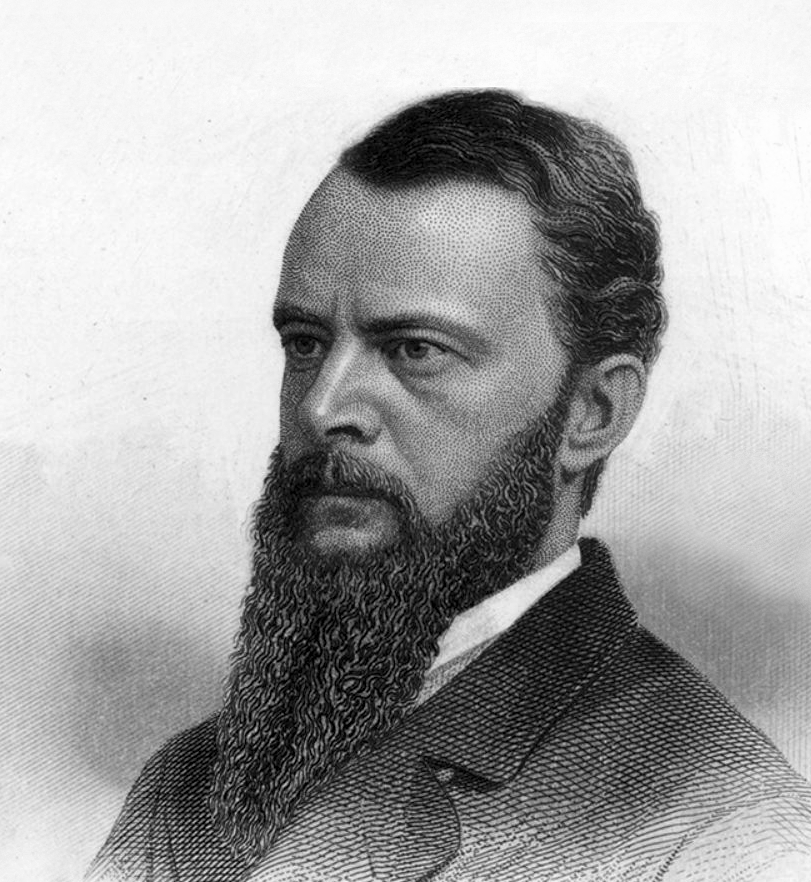
By 1860 that had changed, for as Edward Pollard, editor of the Richmond Examiner, and a leading southern "statesman," defined these issues after the war in 1866, the character of this fact should be clear.
"Slavery established in the South a peculiar and noble type of civilization.......That of the South was scant of shows, but highly refined and sentimental. The South was a vast agricultural country; waste lands, forest and swamps often gave the eye a dreary picture; there was no thick and intricate nets of internal improvements to astonish and bewilder the traveler, no country picturesque with towns and villages to please his vision. Northern men ridiculed this apparent scantiness of the South, and took it as an evidence of inferiority. But this was the course judgement of the surface of things. The agricultural pursuits of the South fixed its features; and however it might decline in the scale of gross prosperity, its people were trained in the highest civilization, were models of manners for the whole country, rivaled the sentimentalism of the oldest countries of Europe, established the only schools of honor in America, and presented a striking contrast in their well-balanced character to the conceit and giddiness of the Northern people."
While the south came to be shaped indelibly by such economic practices, its political institutions would come to rival those of the feudal Europe America had been created as a reaction against. Just as Carey, Clay, and others well knew, southern political institutions and practices were inseparable from the economic doctrines that governed its slave-based system. British oligarchical political thought would mirror British economic influence.
As Sidney Andrews would note, writing in September of 1865 on the eve of the constitutional convention in South Carolina under Presidential reorganization, as a corespondent for the Boston Advertiser and Chicago Tribune,
"That, in the stress of war, South Carolina should implore to be made a colony of Great Britain does not seem half so strange to me as it did nine months ago. Her government was republican in name, but not in fact; while the whole under-current of her society is set toward monarchical institutions; dozens of delegates have said to me that it is n't well to allow the people to elect their own rulers;....... Many of these delegates were elected, not because they represented the will of the parish or district, but because they represented the will of some great family. It was the English system reproduced here, with scarcely a variation. A dozen or more boast of their twenty years in the Legislature. It was not a republican form of government; but, more than that, it was not, is not, and will not soon be, a republican community. 'It will not do,' say the leaders,--men who, personally, are easy, agreeable, and abundant in courtesies to the stranger,--'it will not do to put power in the hands of the common people.' Two delegates have said to me at different times, 'It was a great mistake when we passed our free-suffrage law.'"
That such an outlook would exist in 1865, after the war was over, is not surprising for such notions of the relative social, political and economic prerogatives of the "southern chivalry," the allegedly cultured elite of southern society, had been at the center of southern life for 30 years. In every southern slave state political rights were defined and institutionalized so that they remained in the hands of the planter aristocracy. Even after the battles of the mid 1820's for more egalitarian systems, which eliminated some of the more obnoxious class oriented features of these state governments, the political control still remained in the hands of "the better class."
The structure of the state governments was such that voting and office holding would remain almost exclusively in the hands of the South's slaveholding aristocracy. Just as a small handful of the "landed gentry" would control the majority of southern land and with it southern economic resources, so they would control its governments. In every southern state representation was weighted to insure their control of state legislative bodies. With property qualifications, provisions for no direct popular election of most state officers, and rigorous suffrage requirements the bulk of even the white population had essentially no power over southern affairs. In no southern state did anything close to free universal white suffrage exist, with most southerners having no real political rights. Coupled with social and economic relationships that reinforced this arrangement most southerners were more like subjects, than citizens. South Carolina was assuredly the worst from this standpoint, but it was not vastly different from the rest of the states of the slave south.
With a constitution drafted by John Locke and a system modeled in fact, as well as in name, on that of England, South Carolina at the time of the War of the Rebellion had not yet given its voters the right to elect its Governor, all of their judges, and Presidential electors; these being still chosen by the Legislature.
Its lower house retained the name of House of Commons, its Senate changed, after the Revolutionary War, from House of Lords, but still considered that in popular parlance and in practice. The Legislature was apportioned, by county, on the basis of a combination of taxes paid and white population insuring the a disproportionate representation for Charleston and the low country plantation districts. Even this represented one of the egalitarian concessions of the low country aristocracy in 1818, giving up apportionment based on wealth and total population; with such low country "parishes" having a slave population 10 times that of the white planters the South Carolina Legislature looked more like the greater Charleston chamber of commerce. Property restrictions for all office holders further insured control for the planter aristocracy.
While South Carolina may have also been particularly unique in this fashion, throughout most of the south those who held office were never truly elected; they did not really run for office, they were more often chosen by the planter aristocracy. No effective two party system ever existed in South Carolina, and after the late 1840's the rest of the south began to look more and more like the Palmetto State. As James Hamilton, Jr., South Carolina's nullification Governor in 1832, and a leading planter, and secessionist would boast,
"the people expect that their leader in whose public spirit they have confidence will think for them--and that they will be prepared to act as their leaders think."
The accepted principle was as in aristocratic England, that those who were economically superior, and supposedly, therefore, socially and culturally, as well, should rule for those who lacked such advantage. In this sense the arguments for this political system, mirrored those for the slave based plantation system; just as white slaveholders were the "benevolent" guardians for "less than human" black slaves, they were also the "benevolent" guardians of state power for a "less than civilized" populace. The poor white was taught to accept this paternalistic, and oppressive, system as the natural order of things.
What was the Confederacy?
While, as we have seen, as the result of the practical application of the doctrines of free trade, economically, the south had been turned into a nightmare of backwardness and underdevelopment, in which only a very small class of the planter aristocracy derived any benefit, what was this "noble cause" for which Southerners fought so mightily. What really was the Confederate States of America, as opposed to the mythical notion which most have today? If we understand this, perhaps we will understand how it was that the majority of 7.5 millions of whites, who owned no slaves and received no significant benefit from this "glorious" southern, free trade based, "slave republic," were convinced to tolerate the treasonous attempt at the creation of a separate nation.
Despite its alleged birth in such "principles" as states rights, individual liberties, and an opposition to encroaching Federal power, particularly that of an Administration headed by Abraham Lincoln and the newly created Republican Party, the Confederate States of America was the most repressive, undemocratic and totalitarian political construct that has ever existed in the Western Hemisphere. Without any exaggeration, it would compare favorably to any regime ever described as despotic, including Hitler's Germany or Stalin's Soviet Union.
It's characteristic's might have differed in form somewhat, but in its essence it represented the quintessential fascist society. If one takes the example provided in Friedrich Schiller's comparison of the Athenian society of the period of Solon and that of Sparta under the rule of Lycurgus, the Southern Confederacy was a classic Spartan society. The Confederacy was a "nation" conceived in the desire to preserve an economic and political system based on agrarian backwardness, a slave based cotton economy. The political, economic and social elite of the South was that oligarchical class, described by Edward Pollard as the "superior" more "cultured" Southern aristocracy, who were the baron's of the Southern slave system. It was a system, as we have seen, that was hostile to the development of manufactures, scientific innovation, and internal improvements. It was a system in which enforced backwardness was the hallmark; and the subsequent oppression of the majority of the population, both black slave and poor white, was the result.
After secession, and the creation of the Confederate States of America, the existing system was reified into what was in effect a military dictatorship, for Lee and the better part of the Confederate military command were, by and large, the representatives of that class, one antithetical to the notions of American republicanism. Unlike the German Wiermacht of World War II, they were not just a military leadership in the service of a fascist state. By the evolution and development of the Confederate States of America after secession, this military leadership became the principle institution of policy making of that state, not simply an instrument of it. They exemplified the political combinations that were the "ruling elite" of the Confederacy, and played throughout the war a preponderant role in shaping Confederate policy.
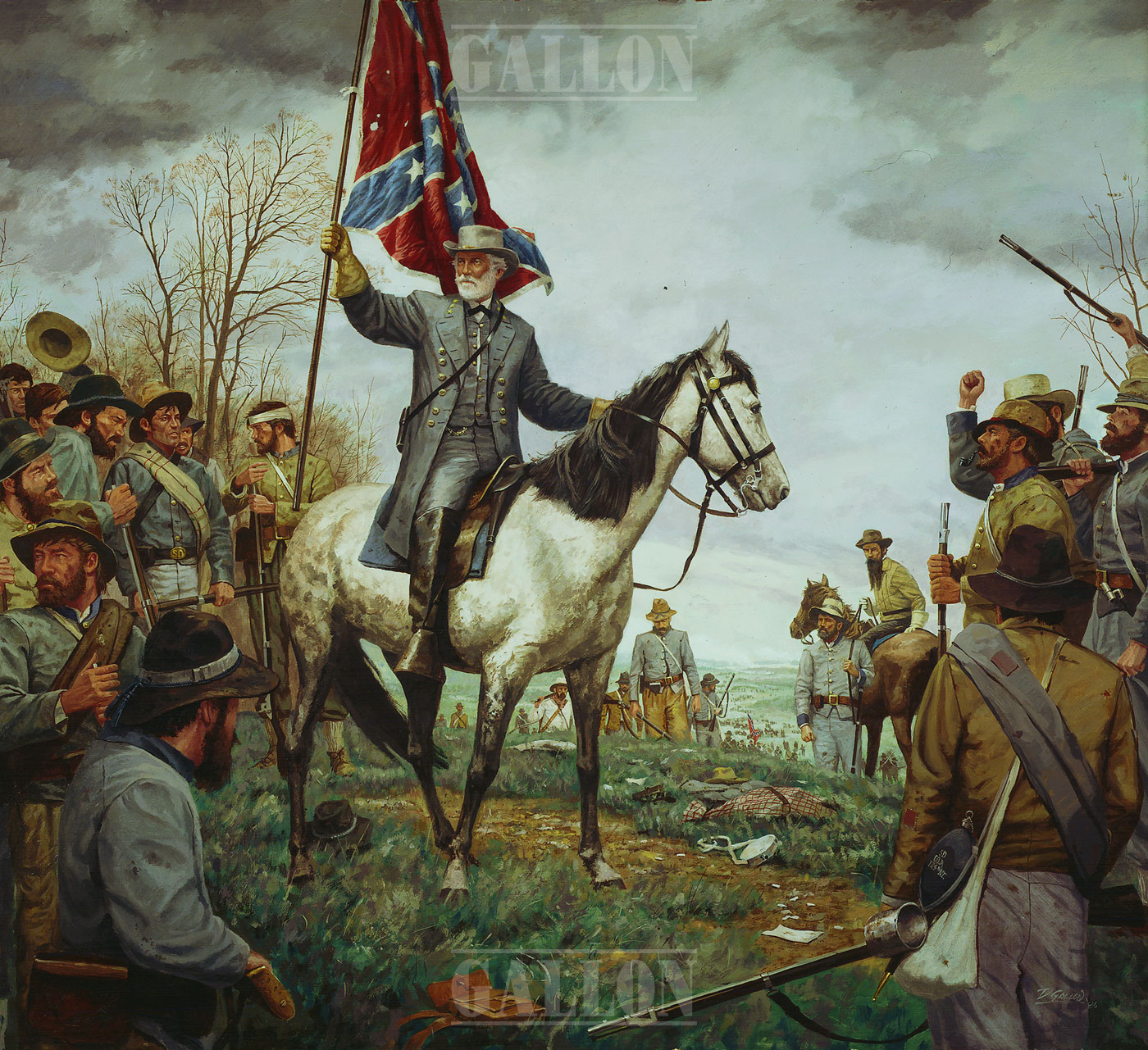
These southerners, members of the south's ruling aristocracy, when they choose to fight on the side of their "homeland," in fact made the choice to fight to defend a way of life. It was no mere question of geography, but a decision that involved, as Pollard expressed it, a fight for a cultural outlook that embodied Pollard's description of "their characteristic as a people has always been that sober estimate of the value of men and things, which, as in England, appears to be the best evidence of a substantial civilization and a real enlightenment."
Some would argue that "states rights" and a confederacy of "sovereign" states all maintaining their various rights, privileges, and immunities, each equal and surrendering to a central government only minimal powers, would have meant greater freedom. However, there was one significant problem with this view when dealing with the American south in 1860. As a result of the economic policies we have described before, no southern state was sovereign in any real sense of the true meaning of that word. With no sovereignty to surrender, the question was who then benefitted from the creation of such a confederacy, and the development of such doctrines as "states rights." The founding fathers having recognized that certain clear economic policies were essential to insure that American sovereignty was protected from British economic colonialization, also understood that British interests would be best served by a weak, impotent central government. Under the Articles of Confederation, they had seen that a grouping of thirteen "sovereign," and loosely allied individual states meant national chaos and the inevitable destruction of the newly won independence. What, in fact, the Confederacy represented was an alliance of the pro-British, Free Masonic networks throughout the south who had engineered secession and disunion. "States rights," a false political ideology that they created for the purpose of furthering their efforts to destroy America, was in fact an empty doctrine. It represented merely a code word for the sovereignty of a southern oligarchy wedded to a free trade based system of economic looting, and an anti-republican political and social order. Since in all but name the sovereignty of the south had, by 1860, already been surrendered to British financial and political power, the creation of the Confederate States of America, simply meant the creation of what amounted to a British satellite state on American soil. The generally accepted fact that without direct British and French intervention on the side of the Confederacy, its hopes for victory in its so-called "war for independence" were virtually nonexistent should be proof of this reality.
That this was, in fact, the real intent of the Confederacy's actual creators can be seen by looking closely at the character of its Constitution. That the so-called Confederate States of America would be a political institution that guaranteed as its two most important "rights" human slavery, and free trade economic policies can be seen clearly from the two clauses of its founding instrument that most directly differed from the Constitution of the United States.
Those provisions on economic matters, and the powers of the state and Confederate governments in those areas, could not have been more explicit. We cite the relevant sections of that document.
"Article 1, Sec 8: The Congress shall have power---(1)To lay and collect taxes, duties, imposts, and excises, for revenue necessary to pay the debts, provide for the common defence, and carry on the Government of the Confederate States; but no bounties shall be granted from the treasury; nor shall any duties or taxes on importations from foreign nations be laid to promote or foster any branch of industry; and all duties imposed and excises shall be uniform throughout the Confederate States.
"(2)To borrow money on the credit of the Confederate States.
"(3)To regulate commerce with foreign nations, and among the several States, and with the Indian tribes; but neither this, nor any other clause contained in the Constitution shall be construed to delegate the power to Congress to appropriate money for any internal improvement intended to facilitate commerce; except for the purpose of furnishing lights, beacons, and buoys, and other aids to navigation upon the coasts and the improvement of harbors, and removing of obstructions in river navigation, and in all which cases, such duties shall be laid on the navigation facilitated thereby, as may be necessary to pay the costs and expenses thereof......."
While the Confederate Constitution guaranteed the right of human bondage, it also barred any State or Territory, as well as the Confederate government, from passing any law that would allow for its eventual abolishment.
"Article 1, Section 9. (3) No bill of attainder, or ex post facto law, or law denying or impairing the right of property in negro slaves shall be passed."
That the south's "peculiar institution" was of more importance than the principle of "state sovereignty" or "states rights" was clear from the clause which established an internal fugitive slave clause for the Confederacy.
"Article 4, Section 2. (3) No slave or other person held to service or labor in any State or Territory of the Confederate States, under the laws thereof, escaping or unlawfully carried into another, shall, in consequence of any law or regulation therein, be discharged from such service or labor; but shall be delivered up on claim of the party to whom such slave belongs, or to whom such service or labor may be due."
In these sections, as was described earlier, the major and most important differences from the Federal Constitution existed. As to the notions of "states rights," with the exception of the language of its opening clause, the power of the individual States was nowhere elaborated, as being any different from that of the Constitution of the Federal Union they were in rebellion against. The language of that opening clause was more than sufficiently negated by other provisions of the Constitution.
"We, the people of the Confederate States, each State acting in its sovereign and independent character, in order to form a permanent federal government......."
However, such provisions as those that follow, both strike one as odd for a "states rights" based confederacy of "sovereign and independent" states and, as mentioned above clearly defined the powers of the individual States in relation to the Confederate central government.
"Article 1, Sec. 10 (1) No State shall enter into any treaty, alliance, or confederation; grant letters of marque and reprisal; coin money;.....
"(2) No State shall, without the consent of Congress, lay any imposts or duties on imports or exports, except that may be absolutely necessary for executing its inspection laws; and the net produce of all duties and imposts, laid by any State on imports or exports, shall be for the use of the Treasury of the Confederate States; and all such laws shall be subject to the revision and control of Congress.
"(3) No State shall, without the consent of Congress, lay any duty of tonnage, except on sea-going vessels, for the improvement of its rivers and harbors navigated by the said vessels; but such duties shall not conflict with any treaties of the Confederate States with foreign nations; and any surplus of revenue thus derived, shall, after making such improvement, be paid into the common treasury; nor shall any State keep troops or ships of war in time of peace, enter into any agreement or compact with another State, or with a foreign power, or engage in war, unless actually invaded, or in such imminent danger as will not admit of delay......"
So much for the doctrines of "states rights." The framers of this instrument for a government, supposedly, based on such doctrines, seemed more concerned with the protection of the rights of those who controlled its economic life and as a result, its political, as well. Not to over emphasis what should be obvious, but the South was not simply a society that believed in the racist notion of the inferiority of the black race, but justified human slavery as the fundamental, just, and proper institutional solution to economic, as well as, race relations. Free trade and slave labor, in the form of African slavery, was the foundation of the Confederacy. Such a bestial notion of the nature of man permeated every aspect of Southern society.
For the thirty years prior to the Great Rebellion, the doctrines of free trade and the tyranny that inevitably goes with those economic practices, had slowly shaped a society in which dissent became impossible. The suppression of speech and the press, the use of the slavery question as the test for political soundness, the incessant use of imaged threats of the imminent "risings" of the slaves and attacks on everything northern, silenced those who would oppose such policies and effectively solidified the power of a native oligarchy whose continued power depended on a slave based agricultural system.
Southern policy, both political and military was made by a small hand full of the Confederacy's political and military leaders. The political combination that sustained the Davis government, insured that no significant opposition ever developed. One should remember that the Confederacy was a one party system, where there never developed any institutional force to challenge the "party" in power. The so called Confederate Congress never served as anything more than a mere rubber stamp for the Davis regime. And even though there may have been rumbling's about the "usurpation" of the sovereign rights of the states, in this "states rights" based system, the power of the central government of the Confederacy was unchallenged in any significant fashion throughout the short life of the Confederacy. It would be fair to say that the powers of the Richmond government over varied aspects of Southern life and policy were far greater than those of the Lincoln Administration. The Davis government, however, was the government of a supposed confederacy of independent sovereign states, while the government in Washington was based on the principle of the inherent powers of the Federal government contained in the Constitution, and with those powers stretched to there very limits by conditions of internal war; the very concept of Federal power which Southerners, supposedly found so repugnant.
For example, much historical analysis has been expended on the issue of the propriety of Lincoln's war time measures, like the suspension of the writ of habeas corpus, and many have even compared these unfavorably to protections that supposedly existed in the Confederacy. Such comparisons however miss the point, for even though such rights nominally were never suspended in the South, in fact the treatment given to those who opposed Confederate rule and policy was more severe and much more widespread. The arrest of Unionists throughout the South was common. However, more frequently those who were active in their opposition were either assassinated, executed or fled to the North in fear for their lives and property. While, Governor Horatio Seymour's comments prior to the famous New York City Draft Riot can reasonably be construed as an incitement to the violence that erupted, he was neither jailed nor removed from office. No northern dissenter was ever executed, none had their property confiscated or destroyed, and only one was exiled. No level of dissent that was even comparable in the South was ever tolerated.
The most malignant aspects of the Confederacy, however, did not exist in institutional form. It was in the economic, social and cultural character of southern society that the most oppressive nature of that society existed. It was these areas from which the most contaminating influence on the nation as a whole after the war came. It was also here that the most insidious, and most vicious effects of free trade doctrines were to be seen.
In a certain way, perhaps the essential evil of the Confederacy was most clearly expressed in its response to the recruitment and deployment of Black regiments in the Northern Armies. By proclamation of the Confederate government, for white officer's to command Black troops or for Blacks to fight for freedom and the Union was effectively made a capital crime. Any officer or soldier in a Black combat regiment would upon capture by Southern forces, be tried under Confederate law for fomenting insurrection of Black slaves against the government. These statutes carried the penalty of death. Even Blacks deployed in non-combat functions with the Union Army if captured would be returned to slavery, as thousands, including free born Blacks, were. Such a measure had nothing to do with the Southern fears that supposedly existed of internal insurrection among Black slaves or that the arming of Blacks in Northern Armies would fuel the tide of escapes of the slave workforce, both of which were used by Southerners as arguments to justify this measure. The measures to deter Southern Blacks in either case had existed for years prior to the war and were brutally simple. The need for such penalties against Northern soldiers, in violation of all the rules of war, was non existent. However, for a barbaric, Spartan state of the sort that the South was, such measures served a very real purpose; upholding the principles of brutality and violence upon which the whole of Southern life was based.
De Vandyke
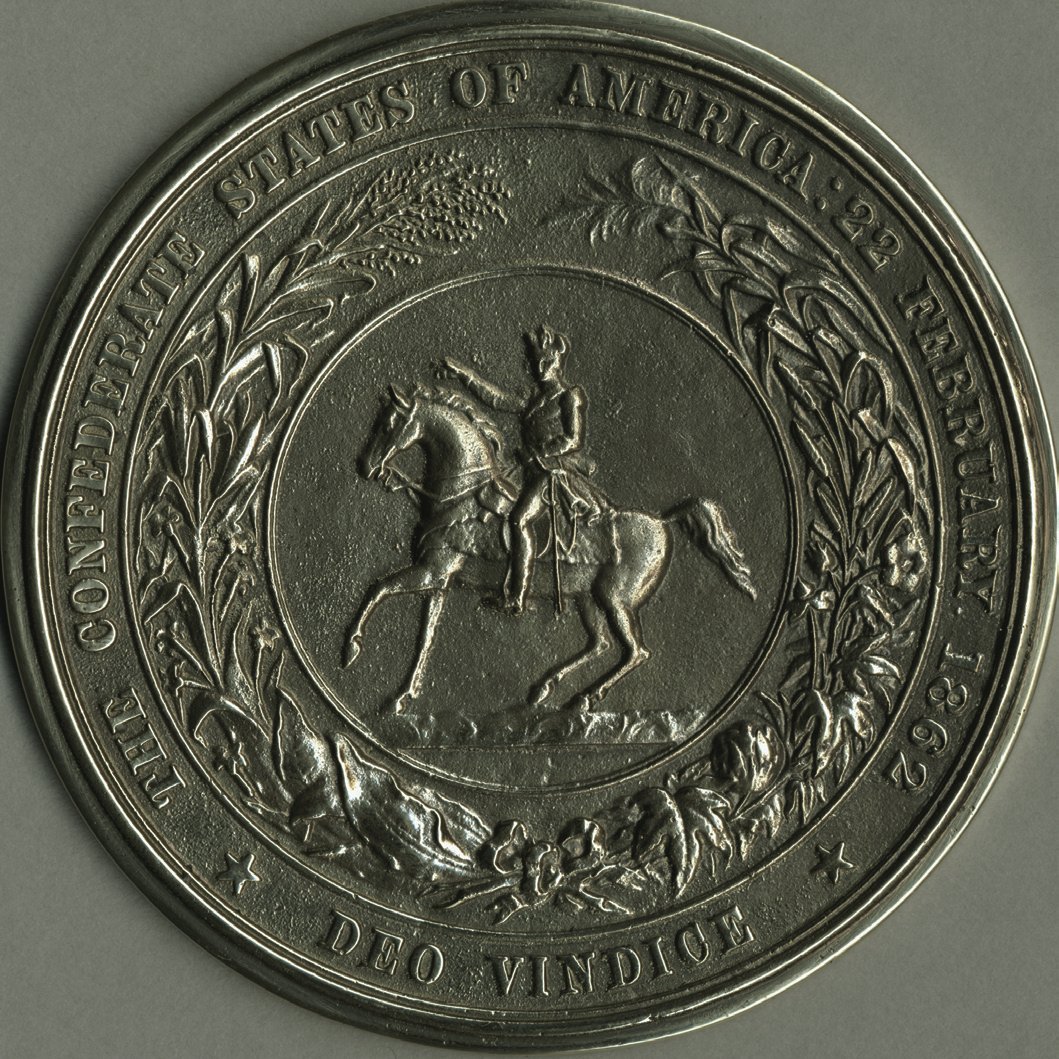
In a outrageous perversion of those principles that are the core of Christianity, the southern population was organized around the irrationalist belief that the creation of the Confederacy and it's so-called "war for independence," the defense of this Spartan society, was divinely ordained. The motto "De Vandyke" or "God's vengeance" inscribed on the great seal of the Confederate States of America was not accidental. The Confederate Congress selected this epigram "to express the religious sentiments of the nation."
What were those sentiments? In effect they were the American equivalent of the jihad or holy war fundamentalist insanity of Khomeni's Iran of a hundred years later. In the same fashion as Islamic fundamentalism, this religious justification for state action became during the war a central aspect of southern life. In both dozens of national days of fasting, humiliation and prayer declared by Jefferson Davis, and in officially sponsored "revival" meetings within the Confederate army these notions were cultivated and spread. A sampling of the views espoused by both southern political and religious leaders gives one a sense of this.
"To shed such blood, as we have spilled in this contest, for the mere name of independence, for the vanity or the pride of having a separate national existence would be unjustifiable before God and man. We must have higher aims than these.... All nations have their assigned missions. A nation should not be a dead abstraction, signifying only the aggregation of individuals, instead it possesses a unity of life...analogous to the powers of will in a single mind. It stands in definite moral relations."
This sentiment voiced in a 1861 Fast Day sermon was wide spread throughout the south, as was the belief in what that mission was. As the Christian Observer noted in 1862,
"The Confederacy will be the Lord's peculiar people. It will be the nation to do his work upon earth."
A similar view was expressed by a Greensboro, S.C. minister,
"A pure Christianity is wrapped up in this revolution, and Providence is using the South for the grand work of its preservation and extension."
And as Alexander Sinclair, a Methodist leader from South Carolina, asserted,
"I have heard men in their ignorance attribute our national disorders to the influence of Puritan doctrines. Egregious error! The doctrines of the original Puritans were, and are, the doctrines of the Bible.....But the descendants of the Puritans have gone astray from the creed of their forefathers. [sic] Confederate independence will establish the South 'like a city set upon a hill' to fulfill her God given mission to exalt in civilization and christianity the nations of the earth.....The time has arrived when the claims of moral and political duty are so indissolubly connected, that they cannot be considered apart."
Given the nature of southern society, particularly its reliance on human slavery, and the principles against which it was in revolt, religious justifications for this "holy mission" would inevitably be directed against a "unholy" North. The biblical imagery used in the following sermon from a Southern minister, was one with widespread use throughout the Confederacy.
"David broke off from the first Israel under the reign of the house of Saul....Davis broke off from the second Kingdom of Israel under the reign of her first King, A. Lincoln, and established the second Kingdom of Jerusalem."
Similarly, the following section from the 1st chapter of Jeremiah was quoted frequently, oft times with a sense of the biblical prophecy implied by the war and its outcome.
"Then the Lord said unto me, out of the North an evil shall break forth upon the inhabitants of the land, and they shall fight against thee, but they shall not prevail against thee, for I am with thee."
This was more than a people, naturally seeking a higher justification for their actions. Some historians or social historians have attempted to dismiss it in this fashion; along with arguing that in other ways the South's view of itself and its "mission" similarly sprang from a common tradition that existed, both geographically and historically, throughout all of the American nation. As one historian has put it "National politics were intimately tied to religion in what one scholar of the revolutionary era has called a 'convergence of millennial and republican thought.' The Confederacy self consciously portrayed itself as the fulfillment of this legacy."
However, this was in no way the case. Those who were the architects of southern secession, similarly bolstered their justifications for Southern actions with not just attacks on the North, but with a specific repudiation of everything "northern"; a rejection of all that represented the republican tradition upon which America had been built. In this way what was, in fact, being created was the notion of Southern Supremacy, based on an explicitly oligarchical outlook and political, economic and social system. African slavery was certainly the foundation of that system, but it went well beyond just that. This notion of "Southern Supremacy" was fundamentally anti-republican. Rather than simply the defense of slavery and the southern economic system of which African slavery was a part, the crisis leading to secession, the southern attacks on the North, and the Civil war itself were all rooted in this anti-republican belief in not only the supremacy, but the perfection of an oligarchical southern society.
Slavery and the Southern Mission
"Slavery is central to not only our spiritual but our national life" -- Pastoral letter of the Bishops of the Southern Episcopal Church.
"Negro Slavery is the South, and the South is Negro Slavery" - A Georgia editor in 1860
"Slavery and the cause must rise or fall together, for they are identical." - Mobile Register
"Now what are we fighting for? We are fighting for the idea of race. - Daily Richmond Enquirer
"Our Ideal is a PRO SLAVERY REPUBLIC." - Augusta (Ga.) Daily Constitutionalist.
"This struggle has set the seal of providence before the eyes of the world upon domestic slavery. Above all, it is this that lends an awful sacredness to this contest on our part - that the rightful claims of Jehovah are deeply involved" - William A. Hall in a lecture entitled "The Historical Significance of the Southern Revolution."
"We do not place our cause upon its highest level until we grasp the idea that God has made us guardians and champions of a people whom he is preparing for his own purposes and against whom the whole world is banded. - Episcopal Bishop Stephen Elliot "Our Cause in Harmony with the Purposes of God in Jesus Christ." - A Sermon given in Savannah, Ga. 1862
The preceding quotes from a variety of southern religious and political leaders and major southern editors makes clear the central position of Black slavery in this "southern mission."
More striking, however, because it is not generally recognized, is the naked and often vicious attacks on the principles of American republicanism which southern leaders saw embodied in all that was northern.
Among the sins, in the eyes of Southern leaders, for which the war was serving as a punishment was the corrupting influence of northern life, and, particularly, its influence over the Federal government. To many southerners, and emphasized by Southern religious leaders, failure to observe the Sabbath was "one of the sins which has, in a measure, come down to us by entail from the Federal Government." As Episcopal Bishop Stephen Elliot, one of the most prominent of the southern clergy, described it,
"there is no instance upon record of such rapid moral deterioration of a nation as has taken place in ours in the last forty years."
The antidote was secession and the war as "purification, separation from the pollutions of decaying northern society, that monstrous mass of moral disease." as the Mobile Evening News described it. As Bishop Elliot argued, to reject northern industrial development, with the manufactures, scientific and technological advances that were central to it, and to
"let us strive to bring back the purer days of the republic, when honest merit waited like Cinncinatus at his plow, to be called forth for service.," was the objective of the Confederacy.
However, it was not simply what southerners thought about what the nation was becoming that alarmed them, it was also the fundamental principles on which the nation was founded that needed to be rejected. As numerous Southern political and religious leaders argued, the Confederacy was being founded upon a purer and more perfect basis.
Contrasting the Federal Constitution with that of the Confederacy, they compared the invocation of God in their own and judged that of the founding fathers a "Godless instrument."
"May it not be that God is now punishing this nation for this practical atheism and national neglect and not by organic law, legislation, and in a public manner acknowledging his supremacy?"
asked one Southern religious leader. James Henley Thornwell, a leader of the Southern Presbyterian Church, argued that the problem with the U.S. Constitution was that it endeavored
"to make the people a God." This instrument, viewed in such a fashion, supported the idea that the error that underlay most of America's sins was the development of doctrines that, as Reverend Calvin Wiley put it, "glorify man, and as a natural consequence, discredit God."
Any notion of the principle that is the foundation of republicanism, and the basis for the best currents of American political, economic and social thought, that man through his actions, through that which glorifies him, thus glorifies God, and is therefore the expression of the lawfulness of creation, were not only absent, but were being consciously rejected. "It is imperative to talk less of the rights of the people and more of the rights of God," Methodist Bishop George Foster Pierce admonished the Georgia General Assembly.
Of course, with this, political rights in the South were undermined and the status quo of an oligarchical ruling elite was strengthened; and this with imprimatur of both the State and the Church. Not just the cause of "Southern rights" and the state which was ostensibly created to defend them, but African slavery, and the free trade based, feudalist agrarian economic system which bred human slavery was given divine justification. The very characteristics of the Europe, particularly the England, that America had been created in opposition to, were personified in the South. The "Divine right" of Europe's aristocracy, had become "divinely" ordained Southern Supremacy.
It was with these ideas that over a million non-slave holding southern whites were mobilized for war against their nation, the United States. Ideas that most of them would have never accepted only a decade before the war now became the basis for an insurgent government. An ideology and a political, economic and social system that most non-slave holding southerners should have found repugnant prior to the war had become hegemonic. In this fashion did the evil and immoral oligarchical doctrines of "British" free trade and anti-republicanism almost destroy the nation. The United States waged a war unprecedented in human history to eliminate these ideas, and the policies based on them, and the American people today should not allow themselves to be conned into continued acquiescence in their resurrection. To the extent that the doctrine of free trade, characterized so accurately by Henry C. Carey as "the most gigantic system of slavery the world has yet seen," is resisted the tendency towards freedom grows; to the extent it is not, slavery, and the degradation of man, the destruction of that which differentiates man from the beast, becomes the fundamental character of a nation. Today we have already lost far to much of the freedom and dignity of mankind to allow this nation to continue to be the vehicle for the dominance of such policies both here and throughout the world.
The preceding article is a rough version of the article that appeared in The American Almanac. It is made available here with the permission of The New Federalist Newspaper. Any use of, or quotations from, this article must attribute them to The New Federalist, and The American Almanac.
![]()
![]()
Disclaimer:
Some material presented will contain links, quotes, ideologies, etc., the contents of which should be understood to first, in their whole, reflect the views or opinions of their editors, and second, are used in my personal research as "fair use" sources only, and not espousement one way or the other. Researching for 'truth' leads one all over the place...a piece here, a piece there. As a researcher, I hunt, gather and disassemble resources, trying to put all the pieces into a coherent and logical whole. I encourage you to do the same. And please remember, these pages are only my effort to collect all the pieces I can find and see if they properly fit into the 'reality aggregate'.
Personal Position:
I've come to realize that 'truth' boils down to what we 'believe' the facts we've gathered point to. We only 'know' what we've 'experienced' firsthand. Everything else - what we read, what we watch, what we hear - is what someone else's gathered facts point to and 'they' 'believe' is 'truth', so that 'truth' seems to change in direct proportion to newly gathered facts divided by applied plausibility. Though I believe there is 'truth', until someone representing the celestial realm visibly appears and presents the heavenly records of Facts And Lies In The Order They Happened, I can't know for sure exactly what "the whole truth' on any given subject is, and what applies to me applies to everyone. Until then I'll continue to ask, "what does The Urantia Book say on the subject?"
~Gail Bird Allen
![]()
![]()














-
Urantia Book, 44:0.11 - The Celestial Artisans
Never in your long ascendancy will you lose the power to recognize your associates of former existences. Always, as you ascend inward in the scale of life, will you retain the ability to recognize and fraternize with the fellow beings of your previous and lower levels of experience. Each new translation or resurrection will add one more group of spirit beings to your vision range without in the least depriving you of the ability to recognize your friends and fellows of former estates.
-
Princess Bride 1987 Wallace Shawn (Vizzini) and Mandy Patinkin (Inigo Montoya)
Vizzini: HE DIDN'T FALL? INCONCEIVABLE.
Inigo Montoya: You keep using that word. I do not think it means what you think it means. -
Urantia Book, 117:4.14 - The Finite God
And here is mystery: The more closely man approaches God through love, the greater the reality -- actuality -- of that man. The more man withdraws from God, the more nearly he approaches nonreality -- cessation of existence. When man consecrates his will to the doing of the Father's will, when man gives God all that he has, then does God make that man more than he is.
-
Urantia Book, 167:7.4 - The Talk About Angels
"And do you not remember that I said to you once before that, if you had your spiritual eyes anointed, you would then see the heavens opened and behold the angels of God ascending and descending? It is by the ministry of the angels that one world may be kept in touch with other worlds, for have I not repeatedly told you that I have other sheep not of this fold?"
-
Urantia Book, Foreword - 0:12.12 - The Trinities
But we know that there dwells within the human mind a fragment of God, and that there sojourns with the human soul the Spirit of Truth; and we further know that these spirit forces conspire to enable material man to grasp the reality of spiritual values and to comprehend the philosophy of universe meanings. But even more certainly we know that these spirits of the Divine Presence are able to assist man in the spiritual appropriation of all truth contributory to the enhancement of the ever-progressing reality of personal religious experience—God-consciousness.
-
Urantia Book, 1:4.3 - The Mystery Of God
When you are through down here, when your course has been run in temporary form on earth, when your trial trip in the flesh is finished, when the dust that composes the mortal tabernacle "returns to the earth whence it came"; then, it is revealed, the indwelling "Spirit shall return to God who gave it." There sojourns within each moral being of this planet a fragment of God, a part and parcel of divinity. It is not yet yours by right of possession, but it is designedly intended to be one with you if you survive the mortal existence.
-
Urantia Book, 1:4.1 - The Mystery Of God
And the greatest of all the unfathomable mysteries of God is the phenomenon of the divine indwelling of mortal minds. The manner in which the Universal Father sojourns with the creatures of time is the most profound of all universe mysteries; the divine presence in the mind of man is the mystery of mysteries.
-
Urantia Book, 1:4.6 - The Mystery Of God
To every spirit being and to every mortal creature in every sphere and on every world of the universe of universes, the Universal Father reveals all of his gracious and divine self that can be discerned or comprehended by such spirit beings and by such mortal creatures. God is no respecter of persons, either spiritual or material. The divine presence which any child of the universe enjoys at any given moment is limited only by the capacity of such a creature to receive and to discern the spirit actualities of the supermaterial world.
-
Urantia Book, 11:0.1 - The Eternal Isle Of Paradise
Paradise is the eternal center of the universe of universes and the abiding place of the Universal Father, the Eternal Son, the Infinite Spirit, and their divine co-ordinates and associates. This central Isle is the most gigantic organized body of cosmic reality in all the master universe. Paradise is a material sphere as well as a spiritual abode. All of the intelligent creation of the Universal Father is domiciled on material abodes; hence must the absolute controlling center also be material, literal. And again it should be reiterated that spirit things and spiritual beings are real.
-
Urantia Book, 50:6.4 - Planetary Culture
Culture presupposes quality of mind; culture cannot be enhanced unless mind is elevated. Superior intellect will seek a noble culture and find some way to attain such a goal. Inferior minds will spurn the highest culture even when presented to them ready-made.
-
Urantia Book, 54:1.6 - True And False Liberty
True liberty is the associate of genuine self-respect; false liberty is the consort of self-admiration. True liberty is the fruit of self-control; false liberty, the assumption of self-assertion. Self-control leads to altruistic service; self-admiration tends towards the exploitation of others for the selfish aggrandizement of such a mistaken individual as is willing to sacrifice righteous attainment for the sake of possessing unjust power over his fellow beings.
-
Urantia Book, 54:1.9 - True And False Liberty
How dare the self-willed creature encroach upon the rights of his fellows in the name of personal liberty when the Supreme Rulers of the universe stand back in merciful respect for these prerogatives of will and potentials of personality! No being, in the exercise of his supposed personal liberty, has a right to deprive any other being of those privileges of existence conferred by the Creators and duly respected by all their loyal associates, subordinates, and subjects.
-
Urantia Book, 54:1.8 - True And False Liberty
There is no error greater than that species of self-deception which leads intelligent beings to crave the exercise of power over other beings for the purpose of depriving these persons of their natural liberties. The golden rule of human fairness cries out against all such fraud, unfairness, selfishness, and unrighteousness.


